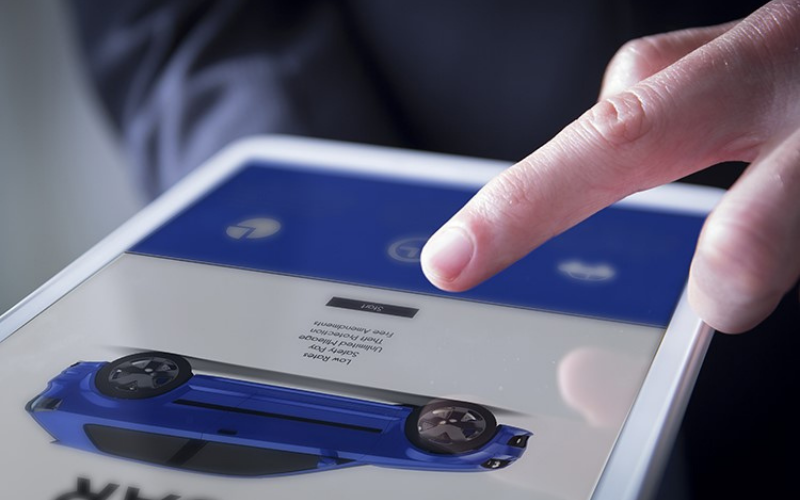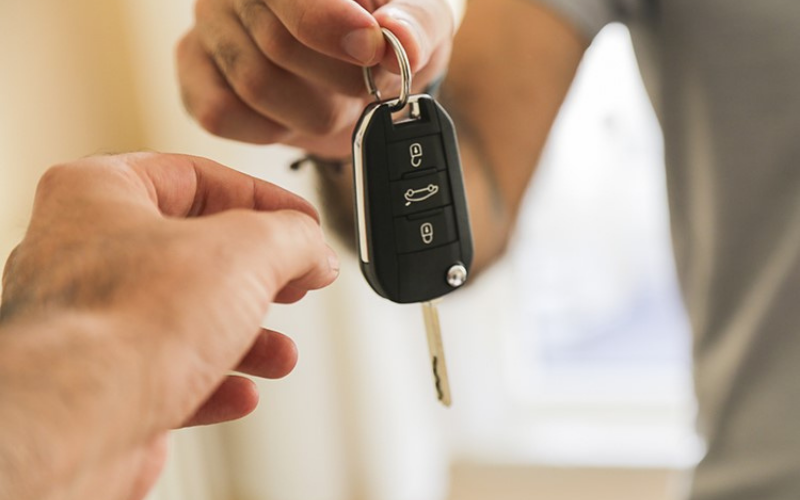Drivers Warned Over Used Car Scam

Drivers looking to purchase a used vehicle have been warned to stay vigilant amidst concerns that a common car scam could become more popular ahead of the 22 plate release on March 1st.
Category C, or “Cat C”, is a term used to describe vehicles that have been written off by their insurance company after an accident, flood or fire damage. They are written off as the cost of the repair would significantly outweigh the value of the car.
In most cases, Cat C cars usually end up being sold at auction to motor traders and garages who can complete the repairs at trade prices. There is usually no issue if the repairs are carried out to a high standard, although some buyers are falling victim to unscrupulous sellers who have completed sub-par repairs.
Motor traders and dealerships must disclose whether a vehicle has been written off, whereas private sellers do not. This means some buyers are unknowingly buying a written-off vehicle that is potentially unsafe for the road.
“It was scary. The vehicle was likely unsafe to drive”
Craig from Newcastle experienced this scam first hand: “I first found the car when looking for a fairly cheap runaround to quickly replace my old car, after it failed its MOT. It was on Gumtree and looked to be in good condition and reasonably well maintained."
It was only a few months after buying that Craig found out about the car’s history: “The car had previously been written off as a Category C insurance write-off, and had undergone some questionable repairs before I bought it. I only found out when curiosity got the better of me and I paid for an HPI check, where it came back instantly as a write-off.
It was scary. The vehicle was likely unsafe to drive; there could have been issues that might have caused an accident. Likewise, my insurance may have been void, as the previous write-off status had not been disclosed to the provider.”
But Craig is not alone in experiencing this type of scam: “I was subsequently contacted by an investigator from Trading Standards, who were investigating the seller who had apparently tried to scam people this way multiple times before. I was told that the hand-written receipt and “bought as seen” were the seller's attempt to pass off any blame onto the buyer.”
Looking back, Craig can now see some of the red flags that he missed during the sale: “In hindsight, he seemed to be hurrying me and looking to get a decision straight away. When I bought the car, I transferred a bank payment which was flagged by the bank. It ended up taking 45 minutes to resolve before I was able to pay for it.
The seller hand-wrote a receipt, which stated “bought as seen” and had me sign a copy for him. Another thing was that the vehicle had previously had private plates - I guess making it more difficult to do a check in the first place.”
The experience has changed how Craig shops for vehicles: “I’m much more conscious now! If I can, I’ll stick to buying from reputable sources or dealers and avoid buying from private individuals. I now make sure I’ve got plenty of information about the car before buying it, run an HPI check to be safe, and take someone along with me to pick up on anything that I don’t.”
More drivers could fall victim to the scam ahead of March’s new car registrations
A representative from new and used car dealership Bristol Street Motors commented: “Unfortunately, not disclosing a vehicle’s full history is a common type of scam that many car buyers fall victim to. It’s one that has considerable cost implications, as the true value of the vehicle is usually less than what the buyer pays and once found, the issues will significantly impact its resale value.
Should the issues render the car dangerous to drive, the cost could be even more significant, endangering the lives of both the driver and passengers.
The private seller market is not regulated like motor traders are, so some sellers are still fooling buyers. Buyers must be vigilant when shopping for a new vehicle, especially in the coming months when new car registrations will see an influx of used vehicles to the market.”
Expert shares six tips to avoid scammers when buying a car
To help, we have shared our essential advice for buyers who are looking for a car:

1. Check the vehicle’s history online
Before you commit to buying a vehicle, it is wise to check its history online. Some checks you can do are free, such as checking the car’s details with the DVLA (you will need to ask the seller for the registration number, MOT test number and mileage) and using the government’s MOT history checker.
When buying from a private seller, you might want to pay for a private history check too. Usually costing around £20, the check will reveal any serious issues with the car such as if it has been stolen, written off or has outstanding finance.
2. Don’t fall for virtual vehicles
Some scammers list cars for sale that they do not own. Most common on marketplace sites, they will copy an advert from an existing listing and offer a good mileage at a slightly cheaper price.
They will encourage you to pay for the vehicle - or at least send a deposit to hold it - without seeing it first. Once they have your details, they can take cash from your account and the car won’t be delivered.
Always view a car in person before you agree to buy it and be wary of elaborate excuses as to why you can’t.
3. Take someone with you for a second opinion
Some private sellers may try to pressure you into making a decision before you have fully considered your options and made up your mind. When viewing a used car, take a friend or family member with you. You will benefit from having a second opinion and they may spot something that you haven’t.
4. Take it for a test drive
Test driving a vehicle is the only way to make sure the car is in good working order and check if it is right for you. Drive for around 15 minutes on a variety of different roads, listening out for any unsavoury noises.
5. If you have any doubts, don’t buy it
Your gut instinct is a good marker of whether you should go ahead with something. If it doesn’t feel right, don’t buy it. The used car market is booming at the moment, so you will likely be able to find the same model elsewhere that’s in a more genuine condition.
If buying from a private seller worries you or sounds too complicated, buy from a reputable dealership instead. Established dealers have already completed all the necessary checks on the vehicles, giving you peace of mind that there’s no nasty surprises.
6. Be cautious of unexpected contact from the DVLA or insurance companies
With the admin involved in transferring a car to your ownership and insuring it, you could be more likely to fall victim to a phishing scam shortly after buying a new vehicle.
Scam texts and emails claiming to be from the DVLA or an insurance company are common. They usually claim that there has been an issue with vehicle tax or cover and need users to enter their details to rectify the issue. This can lead to identity or monetary theft.
Be wary of unexpected contact from the DVLA or your insurance company, and never click a suspicious link in a text message or email. Look out for signs that the mail might not be genuine, such as spelling mistakes or a non-specific greeting e.g. Dear Customer.
Discover the selection of approved used cars at Bristol Street Motors and take the stress out of purchasing your next vehicle.